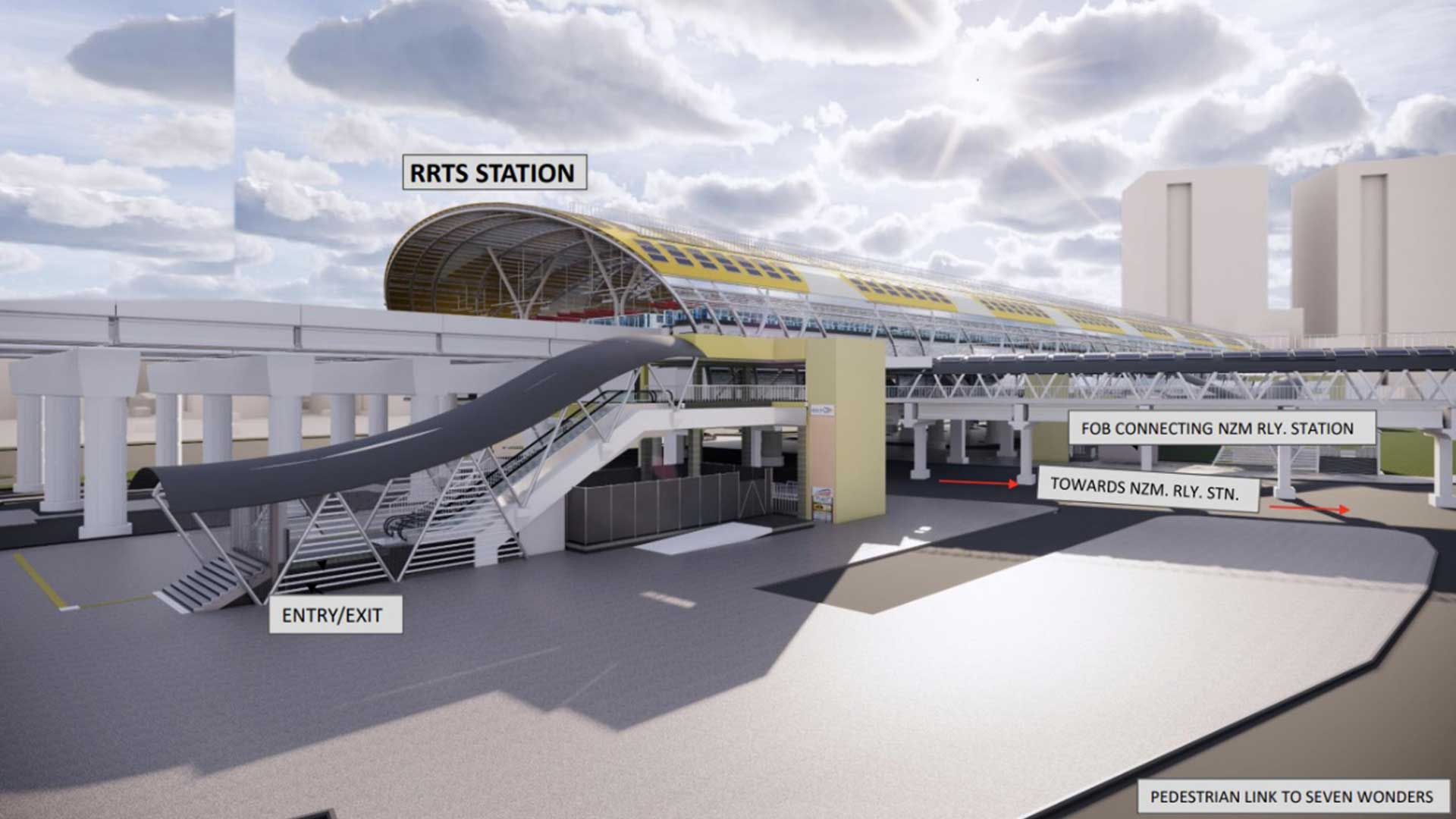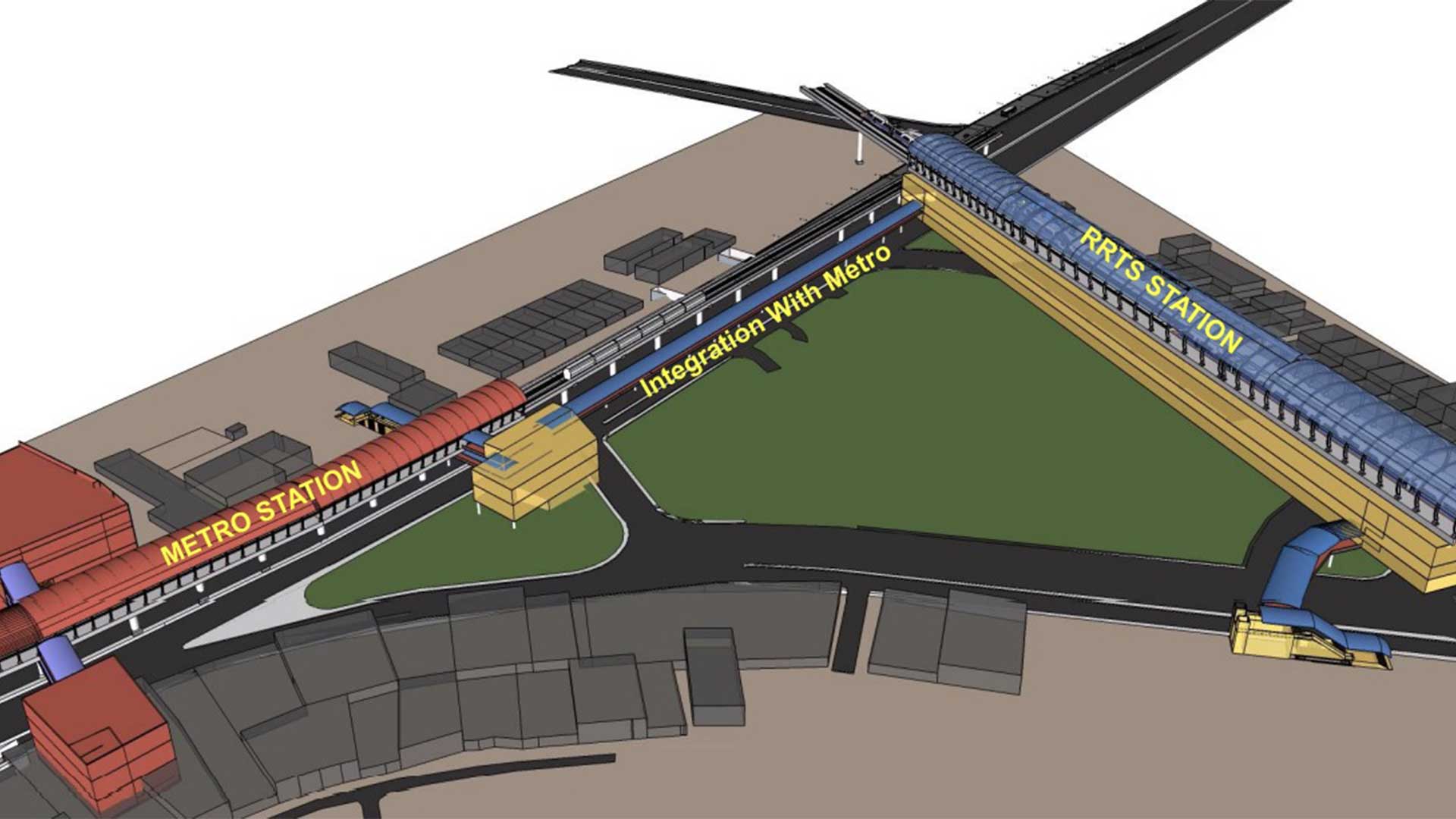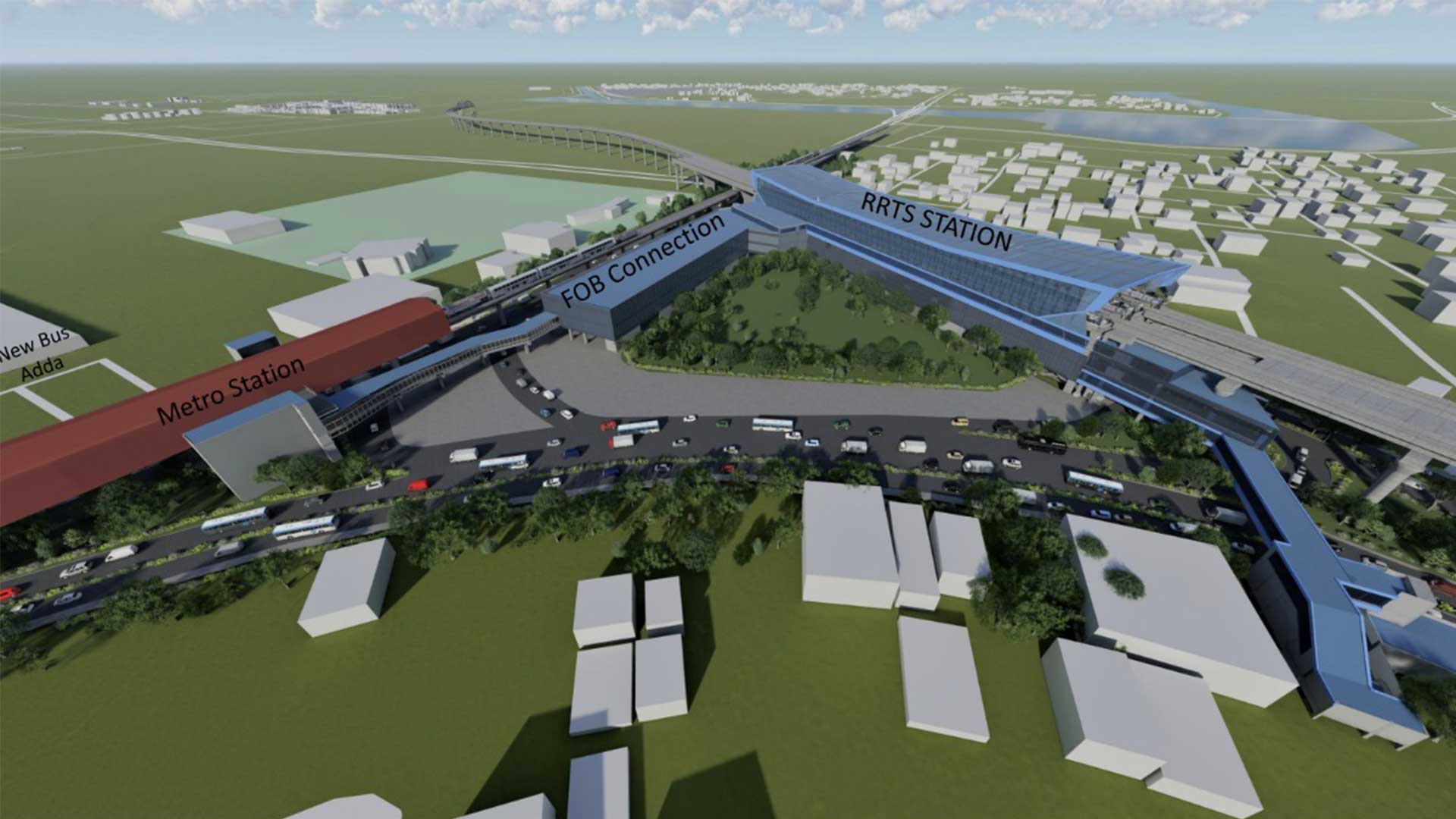Menu
Search
START TYPING AND PRESS ENTER TO SEARCH



NCRTC has taken the initiative of Multi-Modal-Integration to seamlessly connect Namo Bharat network with other modes of public transit. This is in line with our ‘Commuter First’ approach wherein, Namo Bharat stations are integrated with Indian Railways, Metro stations, Airports, and bus depots, wherever possible.
Multi-modal-integration of mass public transit systems will lead to the creation of a huge network of networks, improved ridership, and long-term sustainability for these highly capital-intensive projects. NCRTC is providing this integration through walkways, lifts, escalators, foot over bridges and underpasses.
A fast, convenient and affordable mode of transport such as the Namo Bharat has the potential to completely change the patterns of movement and development across the region. With shorter travel times, the overall productivity of the region would be enhanced, improving the overall economic activity in the region.
Improved connectivity leading to greater economic activity in the NCR would lead to a balanced economic development across the region. Assisting with the development of many more cities and towns in the NCR states, the Namo Bharat would lead to a polycentric trajectory of growth and a more uniform development of the region.
The Namo Bharat would open up new markets and opportunities for people across commute distances which appear infeasible today. It would also help in improving the travel conditions of the current commuters. A faster commute would allow people access to better facilities for healthcare and education, and make recreational trips more enjoyable and comfortable.
A faster mobility option in the form of the Namo Bharat would free up people’s time for more productive activities. Offered at an affordable price, these journeys would also lead to savings, increasing their disposable incomes and quality of life.
Majority of the energy requirements of Namo Bharat is met through renewable sources. Solar power panels are also being installed across the Namo Bharat depots and station buildings.
The implementation of Namo Bharat is part of ‘Comprehensive Action Plan’ (CAP) for Air Pollution Control in Delhi & NCR’ and the recommendation of ‘High Powered Committee on Decongesting Traffic in Delhi’. This transformational regional transit system with small-footprint and high-throughput will lead to significant reduction in pollution in the region.
India has the dubious record of ranking first in the number of road fatalities across the world, with the most unsafe metrics of road travel. The Namo Bharat, a rail based travel mode operating with the best in class command and control systems, would offer a safe and reliable transport option for movement across the NCR.
A rapid rail transit system can ferry a much larger number of people per hour than almost any other mode of transport. The Namo Bharat, which could shift a large amount of traffic from road to rail could free up a lot of road space and ease congestion on highways across the NCR.




Copyright @2016 – www.ncrtc.in. All Rights Reserved. All images on the website are representations. The actual assets may be different…